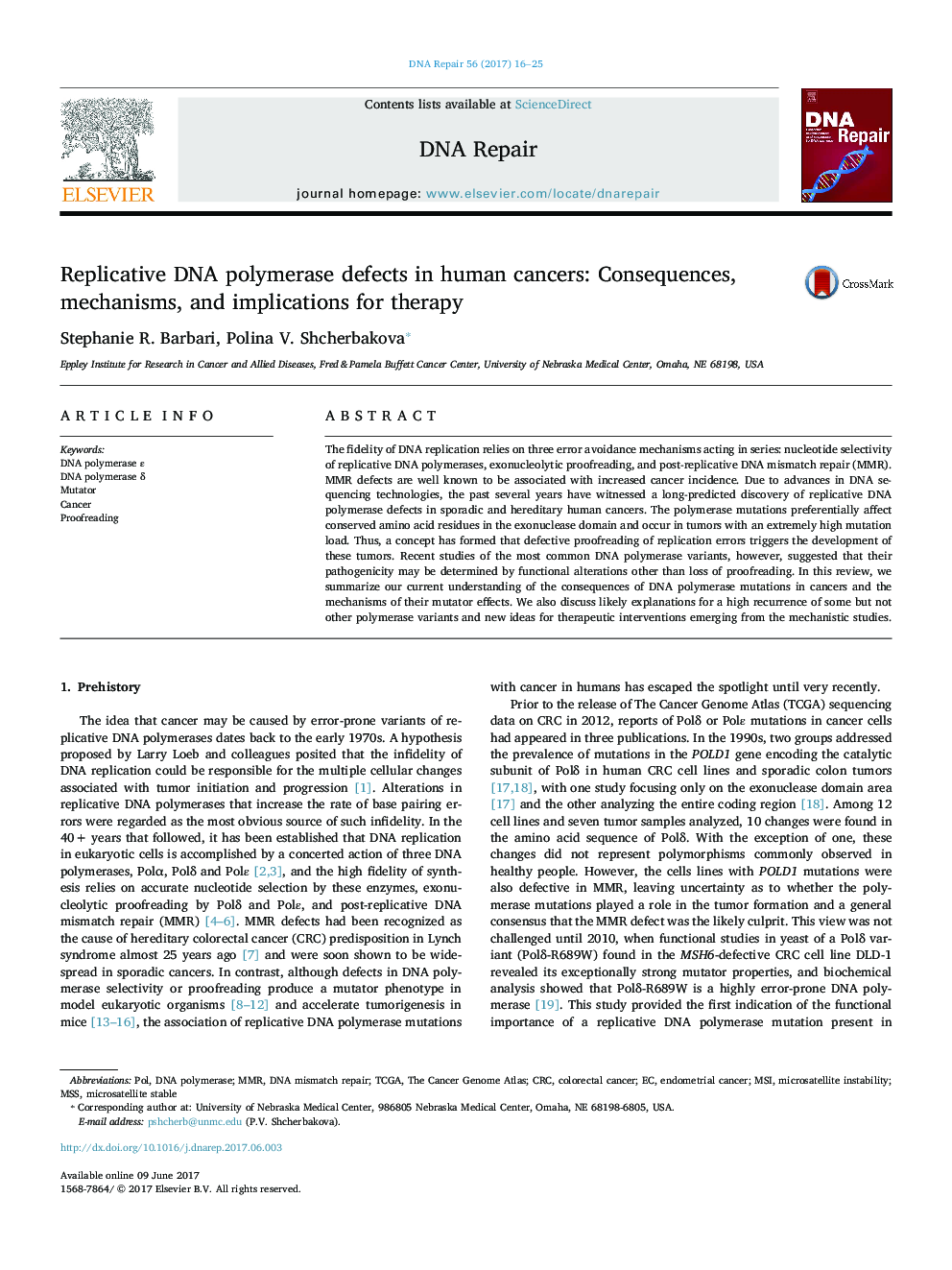| کد مقاله | کد نشریه | سال انتشار | مقاله انگلیسی | نسخه تمام متن |
|---|---|---|---|---|
| 5510972 | 1539372 | 2017 | 10 صفحه PDF | دانلود رایگان |

The fidelity of DNA replication relies on three error avoidance mechanisms acting in series: nucleotide selectivity of replicative DNA polymerases, exonucleolytic proofreading, and post-replicative DNA mismatch repair (MMR). MMR defects are well known to be associated with increased cancer incidence. Due to advances in DNA sequencing technologies, the past several years have witnessed a long-predicted discovery of replicative DNA polymerase defects in sporadic and hereditary human cancers. The polymerase mutations preferentially affect conserved amino acid residues in the exonuclease domain and occur in tumors with an extremely high mutation load. Thus, a concept has formed that defective proofreading of replication errors triggers the development of these tumors. Recent studies of the most common DNA polymerase variants, however, suggested that their pathogenicity may be determined by functional alterations other than loss of proofreading. In this review, we summarize our current understanding of the consequences of DNA polymerase mutations in cancers and the mechanisms of their mutator effects. We also discuss likely explanations for a high recurrence of some but not other polymerase variants and new ideas for therapeutic interventions emerging from the mechanistic studies.
Journal: DNA Repair - Volume 56, August 2017, Pages 16-25